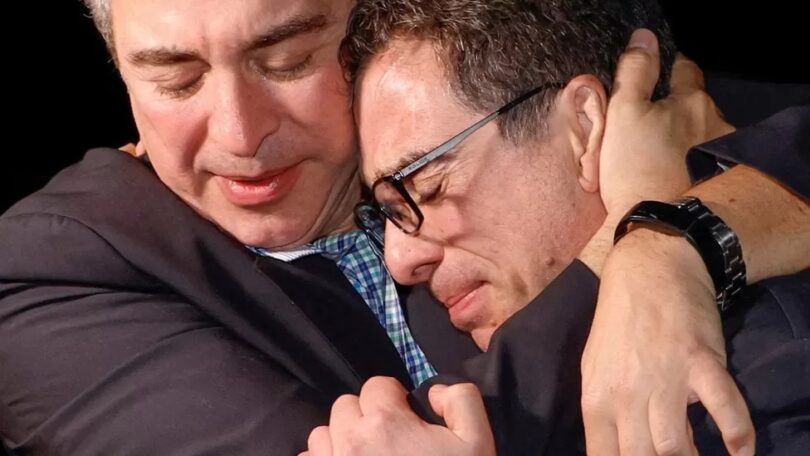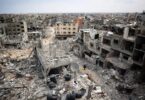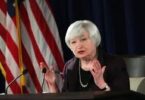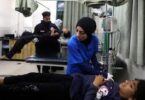WASHINGTON (Agencies): Five US citizens freed by Iran in a high-profile prisoner swap mediated by Qatar have landed back in the United States to a joyous reunion with family members. The group arrived on board an executive jet at an airfield in Fort Belvoir southwest of Washington, DC on Tuesday, a day after landing in Doha on a Qatar Airways flight following their release.
Relatives waved US flags and hugged the freed prisoners as they disembarked from the aircraft, then posed for a group photograph, grinning widely. “Welcome home,” National Security Adviser Jake Sullivan posted on X, formerly Twitter. The freed prisoners, who had been charged with espionage-related offences, were due to receive a medical checkup in the Washington area.
The former prisoners, including one held for eight years, were part of a rare prisoner exchange between Washington and Tehran, which have experienced heightened tensions since 2018 when former US President Donald Trump nixed a multilateral deal that saw Iran scale back its nuclear programme in exchange for the lifting of sanctions against its economy. The swap also saw the release of five Iranians imprisoned in the US and the unfreezing of $6bn in Iranian funds. Qatar helped facilitate Monday’s exchange, which was negotiated over several months and triggered when the funds that had been blocked in South Korea were wired, via Switzerland, to banks in Doha.
The deal has already opened US President Joe Biden to new criticism from Republicans and others who say the administration was being held “ransom” and helped boost the sanctions-hit Iranian economy. But Biden, who thanked in a statement the leaders of Qatar and Oman for facilitating the agreement, insisted that “reuniting wrongfully detained Americans with their loved ones has been a priority” for his administration. US officials also insisted the money would be used only for humanitarian purposes, with a threat to re-freeze the funds if not. Iran, however, has insisted it has full access.
The money “cruelly blocked until now and currently in the possession of the Islamic Republic belongs to the people [of Iran] and we will use them to meet the people’s needs,” President Ebrahim Raisi said in New York, where he is due to address the United Nations General Assembly. Raisi suggested the exchange could be “a step in the direction of a humanitarian action between us and America”. “It can definitely help in building trust,” Raisi told journalists in New York.
One of the freed prisoners praised Biden for ignoring the political backlash and taking the “incredibly difficult decisions” that freed them. “Thank you, President Biden, for ultimately putting the lives of American citizens above politics,” Siamak Namazi, a businessman held by Iran since 2015, said in a statement. Other freed prisoners include wildlife conservationist Morad Tahbaz and venture capitalist Emad Sharqi, both of whom were held at the notorious Evin Prison but placed under house arrest last month.
Two other US prisoners involved in the swap have not been publicly identified. All are Iranian Americans. Upon their arrival at Fort Belvoir, Namazi’s brother, Babak, said, “The nightmare is finally over.” “We haven’t had this moment in over eight years,” he added, his arm around his brother and his formerly detained father, Baquer, who had been earlier released by Iran. “It’s unbelievable.” Meanwhile, two of the five Iranians imprisoned by the US arrived in Iran after travelling via Qatar, according to Iranian media. Two others stayed in the US and one went to a third country. Analysts dubbed the prisoner swap a step towards de-escalating tensions between the US and Iran, but cautioned that it did not point to an imminent thaw in frosty relations.
“Everybody is basically reconciling themselves with the fact that the best they can do for now is to take small steps toward preventing a crisis,” Alex Vatanka, director of the Iran programme at the Middle East Institute think tank in Washington, DC told Al Jazeera. “So that’s all it is. There is no big vision being articulated by anybody that could tell us that something in terms of a breakthrough is in the pipeline. There is no sign of that.”
Some Western officials also viewed the prisoner exchange cautiously. “We are not naive,” European Council President Charles Michel told journalists Monday at the United Nations. “We can also observe the very brutal repression” in Iran, he said, including “the use of kidnappings by the Iranian authorities to put pressure on some governments including in the EU”. “We do not underestimate the level of tensions and difficulties.”







